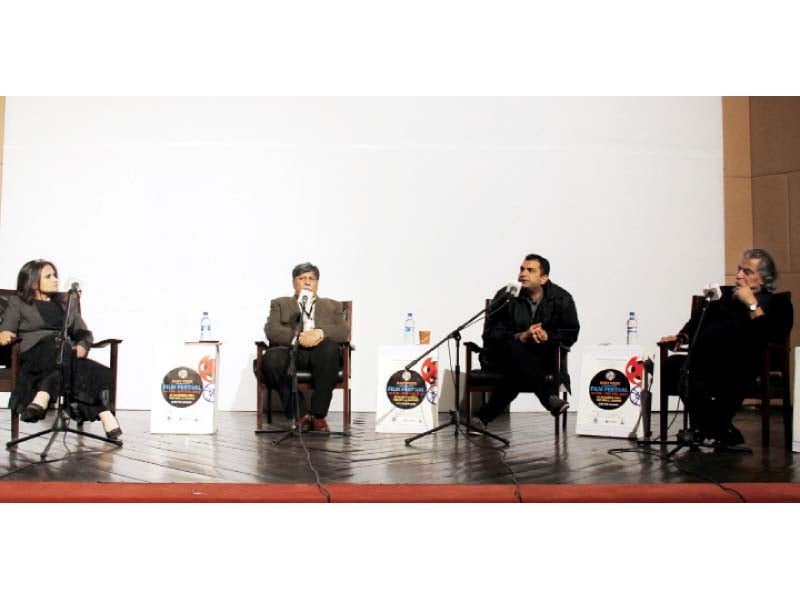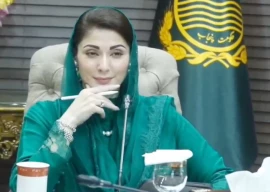
Mehmood, a film student, who was present at the festival across its entire duration, praised the initiative saying it was an excellent way to interact with filmmakers. He said the short films screened were interesting in terms of their concept and themes, though none particularly stood out.
With its final day on Saturday, the fourth iteration of the festival brought to the audience a discussion by filmmakers and teachers on the revival of cinema in the country and the direction it ought to take.
Asghar Nadeem Syed of the Beaconhouse National University said there was great talent in the industry but a paucity of technology and funds. He spoke of the need to fill the void. Syed questioned other speakers on the panel on how Pakistani films could create an independent identity for themselves.
Actor Sarmad Khoosat said it was important to maintain diversity in the industry. He said one of the causes for the decline of the industry in Pakistan was that it had not embraced fresh talent wholeheartedly. “Here we owe a big thank you to the digital revolution which has increased accessibility,” Khoosat said.
He said the enduring question was premised on what one strived to get across to the audience. Khoosat said everyone tended to replicate formulas they observed to be popular. “This is what happened to our soaps,” he said, adding that it was the lack of diversity that had caused television dramas to stagnate.
Actor Usman Peerzada seconded him saying there was diversity in the industry right now. He said films like Jawani Phir Nahi Ani were playing in cinemas alongside movies like Shah. Peerzada said it was important to ensure that the industry remained independent and free from the influence of those calling the shots at television channels. “I fear that channels might eventually start dictating films too,” he said.
Peerzada, also a producer and a director, stressed the importance of fostering a film culture. He said it served an important purpose for filmmakers and audiences. He said Pakistan was still devoid of infrastructure that facilitated flow of money back to a film’s source.
Researcher Wajiha Raza Rizvi said young filmmakers had also helped change the face of Pakistani films. She said, however, the fact no one was willing to trust young filmmakers generally was a problem.
Disagreeing with Raza, Khoosat said most film students lacked ingenuity. “There is an obvious aversion to Bollywood but they take inspiration from recently released European and Iranian movies,” he said. Khoosat said there was need to cultivate original thoughts.
Over 70 films from the world over were screened at the three-day festival that was first organised in 2011.
Published in The Express Tribune, December 20th, 2015.








1732012115-0/Untitled-design-(14)1732012115-0-270x192.webp)








COMMENTS
Comments are moderated and generally will be posted if they are on-topic and not abusive.
For more information, please see our Comments FAQ